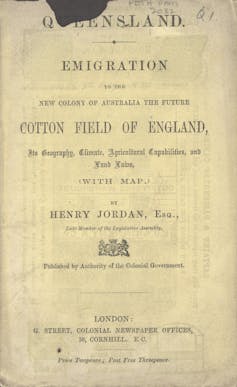
By Paul Collits
We are living through a national crisis. Things are out of control. Sitting atop the disaster is a man who shouldn’t be there.
We are living through a national crisis. Things are out of control. Sitting atop the disaster is a man who shouldn’t be there.
There can be little doubt that Australia, now in a time of crisis and clearly out of control, is run by someone who has no business “being there”. Like the United Kingdom, we are governed by a chancer.
Scott Morrison chanced upon political power in 2018 in the most bizarre of circumstances – a Liberal Party internal civil war and an ideological implosion – and held on to power following a surreal election in 2019 which the Labor Opposition itself suffered its own ideological implosion, and committed political suicide, thus gifting an utterly mediocre and undeserving Liberal led coalition three more years in government.
And now, this chancer sits atop an even more bizarre political scenario, the dictatorship of a virus, and somehow continues to prosper electorally, judging by the polls and the sycophantic support of the corporate media.
http://asenseofplacemagazine.com/king-of-lemons-australia-swindled-by-lockheed-martin-and-its-joint-strike-fighter/
 By Brian Toohey with Michael West Media
By Brian Toohey with Michael West MediaThe Joint Strike Fighter has been plagued by problems since it was just a sketch on paper, when in 2002 John Howard jumped the gun and committed to buying them. But the F-35 still has its champions in Australia with some wanting to buy 200 to get ready for a war with China. This is more of a work scheme for aircraft maintenance personnel than a cost-effective contribution to the defence of Australia, writes Brian Toohey.
“A cost-effective solution,” claimed Australia’s Defence Minister Linda Reynolds.
A costly failure, said Heather Wilson, the then secretary of the US Air Force.
Both were talking about ALIS (Autonomic Logistics Information System), which has a crucial role in Australia’s new F-35 fighter planes. While Minister Reynolds praised ALIS in August 2019 as “a cost-effective solution for key aspects of Australia’s F-35 maintenance management”, secretary Wilson had earlier said, “I can guarantee that no Air Force maintainer will ever name their daughter Alice.”
It soon became obvious that Reynolds was badly wrong. In January, the Pentagon announced it would scrap ALIS because it was causing operational delays of 45,000 hours a year. According to a report to Congress by the Government Accountability Office (GAO) in July, US air force crews weren’t sure if a plane was safe to fly because the information provided by ALIS was either missing or too unreliable. Yet the US has paid billions to ALIS’s developers Lockheed Martin. An earlier GAO report said the system’s data could not be backed up...

By Paige Gleeson, University of Tasmania
Australian Prime Minister Scott Morrison says “we shouldn’t be importing” the Black Lives Matter movement. But in the 1800s, Australia imported plantation owners from the American South.
Prior to the outbreak of the American Civil War, the American south produced almost all of the world’s cotton. As war threatened, plantation owners returned to England and English cotton mills ground to a halt.

A new source of cotton was required, and Queensland would be widely promoted as a cotton growing colony and the “future cotton field of England”. The colony government invited mill and plantation owners and workers to re-migrate and re-establish their industry in Queensland.
Under 1861’s “Cotton Regulations”, individuals and companies could lease land and receive the freehold title within two years if one-tenth of the land was used for growing cotton.

No comments:
Post a Comment